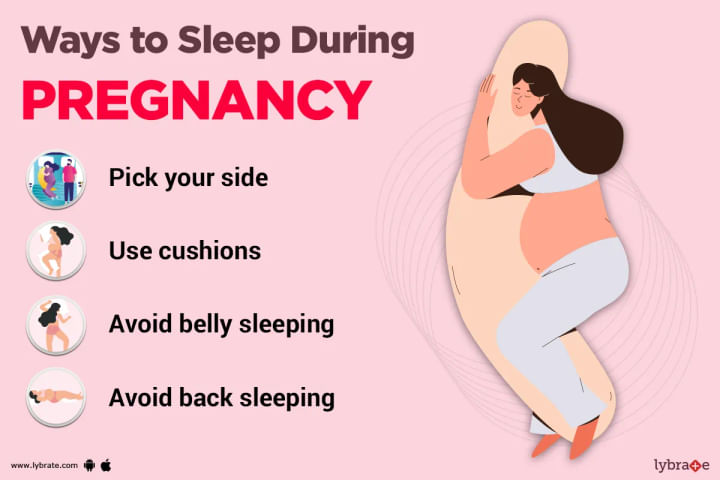How to sleep during pregnancy
Being pregnant can be the best news for any female who is wishing for motherhood. While it is a bliss, it brings so many changes not just to your body but also to your mood and lifestyle. You may crave for certain food at a certain time, or may wish to sleep in a very particular way, not ready to compromise on your comfort as it can give you sleepless nights or may worsen your pregnancy symptoms of nausea, and heartburns.
It is perfectly fine for a pregnant woman to sleep on her back, side, or stomach throughout the first trimester in whatever position she finds most comfortable. Additionally, the uterus is not large enough to interfere with sleep in any way. But it could be more difficult to fall asleep if you have pregnancy symptoms like midnight hunger, nausea, heartburn, and hormonal changes.
While the first trimester can let you enjoy your bedtime your way, second and third trimesters can be a little rough on your sleep and may require some sleep guidelines to be followed strictly to avoid any discomfort.
Best way to sleep during pregnancy
There are some positions that are best to sleep in as they can help in slipping in deep slumber while keeping your discomfort and symptoms at bay;
Pick your side
Falling asleep during pregnancy can be very difficult for many women. Nevertheless, there are a few positions that can make them drowsy as a baby.
- Women who are in their second and third trimesters are advised to sleep on their left side. This position reduces pressure on the liver and increases blood flow to the uterus.
- However, sleeping on the right side is also pretty okay and doesn’t have any adverse effects (as no study claims so).
- Avoid laying on your back since the pressure from your uterus may hurt your spine and back muscles. But don't worry if you wake up on your back.
Use cushions
You can become more comfy by strategically placing pillows.
- A couple of pillows between your bent knees while sleeping may be helpful for pregnant women who experience hip or back pain
- For added back support, cradle the body with a body cushion or pregnant pillow
- Raising the upper body by placing a pillow beneath your tummy can help reduce heartburn
- Pillows can be used to elevate the legs to reduce leg pain and swelling
Avoid sleeping in these positions
Compared to side sleeping, there are some sleeping postures that are considered to be less healthy, a few of these are;
Belly sleeping
A common concern among pregnant women is if sleeping on one's stomach will be bad for the growing fetus. However, because the uterus adequately shelters the developing baby, it is safe to sleep on the stomach throughout the first trimester.
However, during the second and third semester it should be avoided. If you occasionally wake up lying on your belly, it also doesn’t call for concern.
Back sleeping
The major blood veins that supply blood to the uterus are put under stress when sleeping on the back during the third trimester, which starts around the 28th week of pregnancy. This pressure may restrict the fetus's access to oxygen. Additionally, it could exacerbate unpleasant symptoms like heartburn and dizziness in a woman.
Try these to get better sleep
There are various other methods that can improve a pregnant woman's quality of sleep. Women who have trouble falling asleep might try;
- Requesting vitamin testing from her treating doctor. Sometimes, restless leg syndrome (RLS) can be treated with folic acid or iron
- Lifting the head and torso to relieve heartburn
- Always empty your bladder before going to bed to avoid mid night nature call
- You can try sleeping in a semi-sitting position, such as resting on the side in a recliner
- Pregnancy pillows can also help you fall asleep in your favorite position
- To get a sound sleep without any discomfort or heartburn, consume small meals before hitting the bed
Conclusion
Do not worry if you're not getting as much restful sleep as you were before becoming pregnant as pregnancy can bring a lot of bodily and hormonal changes that may make sleeping difficult. You can try various postures or may also use pillows and other innovative ways to make yourself comfortable in a sleeping position. If your sleeping hours reduce to 6 hrs or less a night, consult your healthcare professional as it can have adverse effects on your health.



+1.svg)
